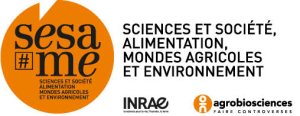Document type : article published in Sésame
Author: Anne Judas
Preview: Sophie Riley teaches law at the University of Technology, Sydney, Australia. Her research focuses on environmental law, animal law and ethics. An internationally recognized expert in these fields, she published The Commodification of Farm Animals (Springer) in 2022. The book [...] traces the history of the health regulations that have shaped international trade, examining in the process the role of international links between veterinary experts. Essentially, Riley questions the place of the welfare paradigm itself in animal production systems and its ethical basis.
The commodification pathway
In this study of the "animal-as-commodity", Sophie Riley examines legal measures expressly designed to prevent cruelty and the principles of animal welfare from a historical angle. She situates them in the context of the economic and commercial networks that have shaped what she describes as the "commodification pathway". This objectifies animals as goods in the marketplace, prioritizes human uses and lacks meaningful ethical commitment. [...]Historical research
Riley first analyzes the history of this dehumanizing development, which began in the sixteenth century. Commercialization of animals, particularly livestock, expanded in parallel with the growth of trade in other products. [...] Viewed from the perspective of (international) trade, animal health is not a matter of welfare, but of protecting national territory against diseased shipments (Chapter 5).
[...]The invention of animal welfare
In Chapter 6, the author describes how the phrase "animal welfare" emerged and came into common usage, being popularized in the UK after the 1965 appearance of the Brambell Report, which examined the fate of farm animals. The term came to be framed through commercial anti-cruelty legislation in such a way that animal feelings counted only if they fitted into recognized commercial parameters. [...]De-commodifying farm animals?
According to the author, both anti-cruelty legislation and animal welfare legislation, which constrain how humans can use animals, are utilitarian in character and are therefore biased in favor of humans and their interests. Society has long accepted that animals and their products are goods to be exchanged, property, and this can only change if nations correct the imbalances in the sector.




